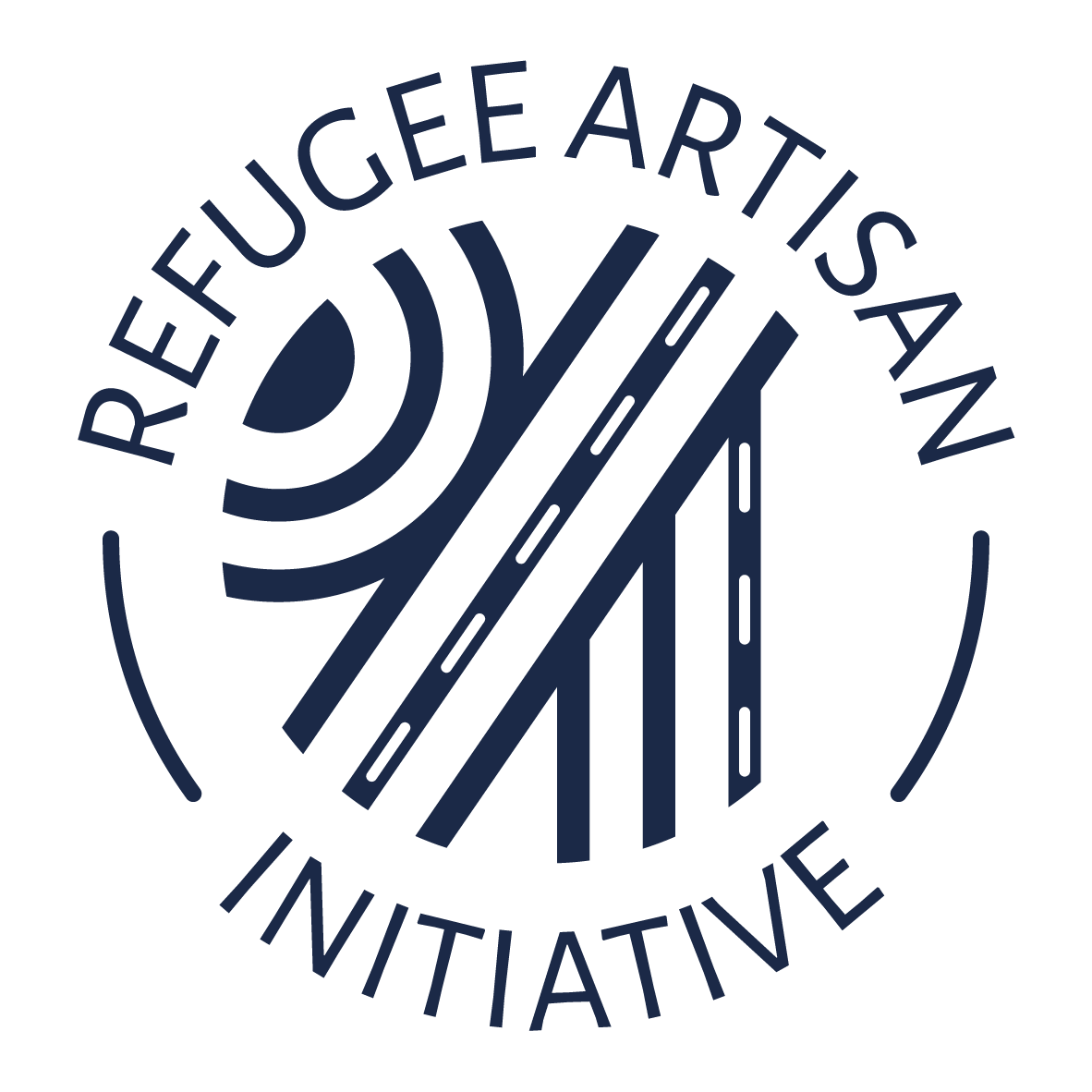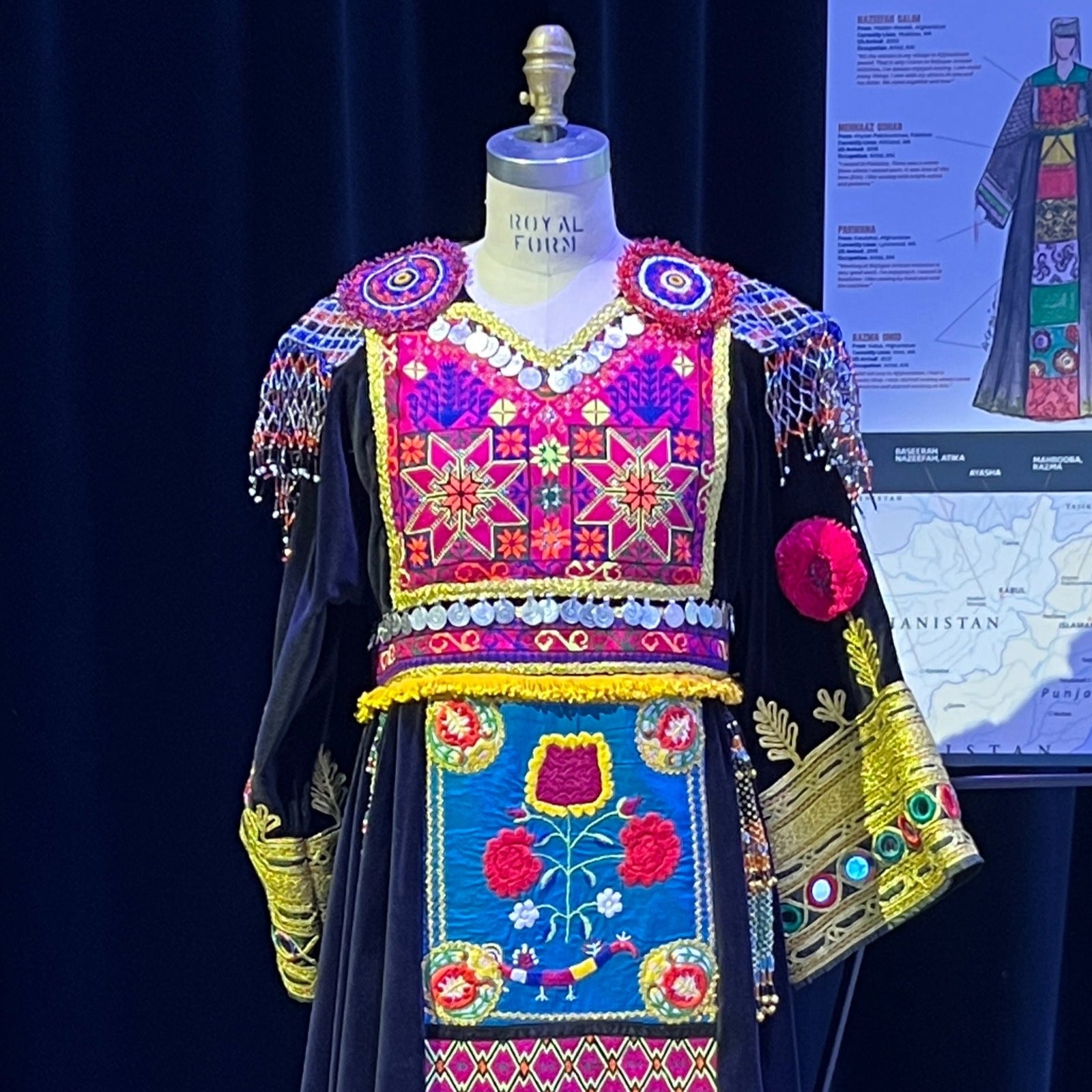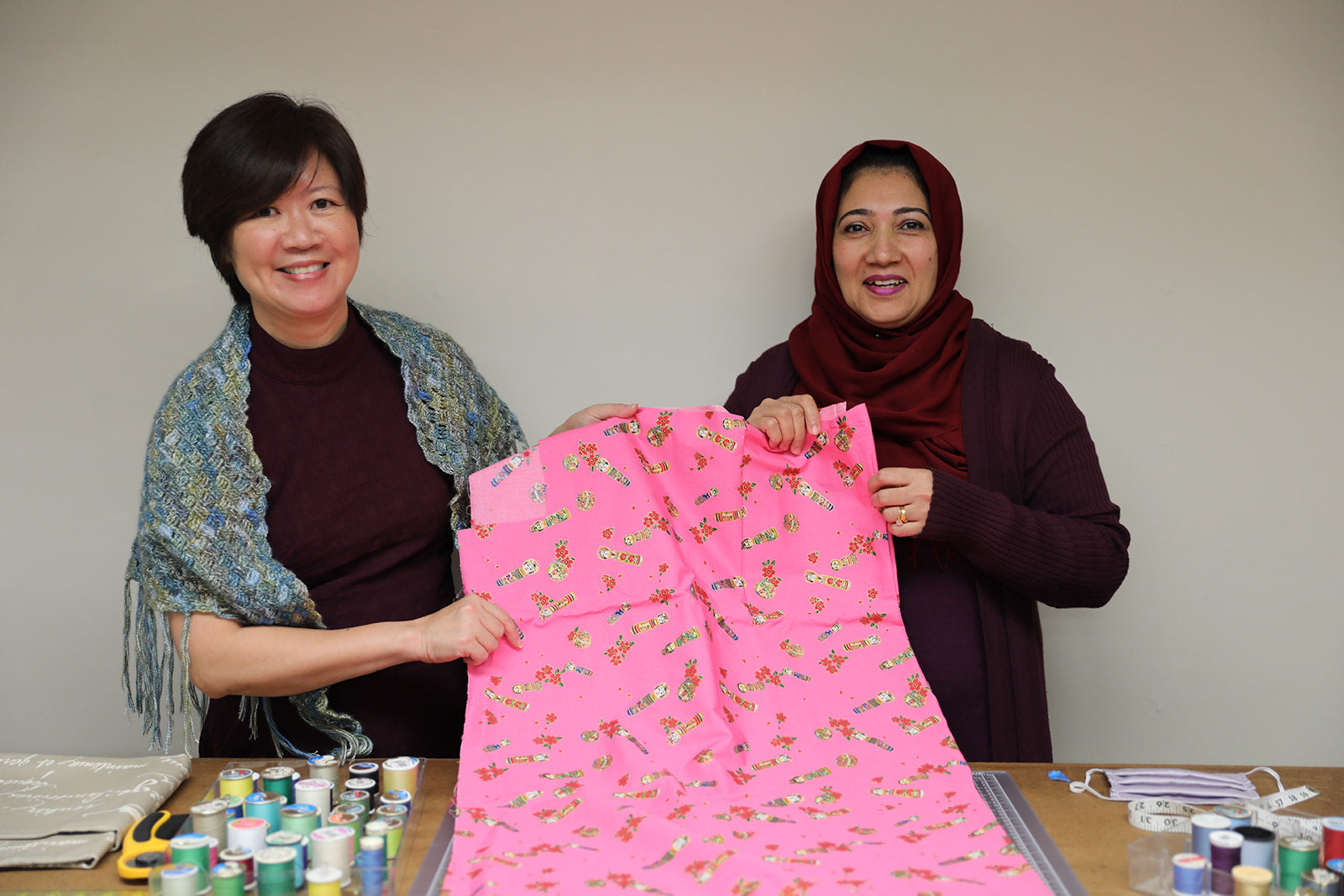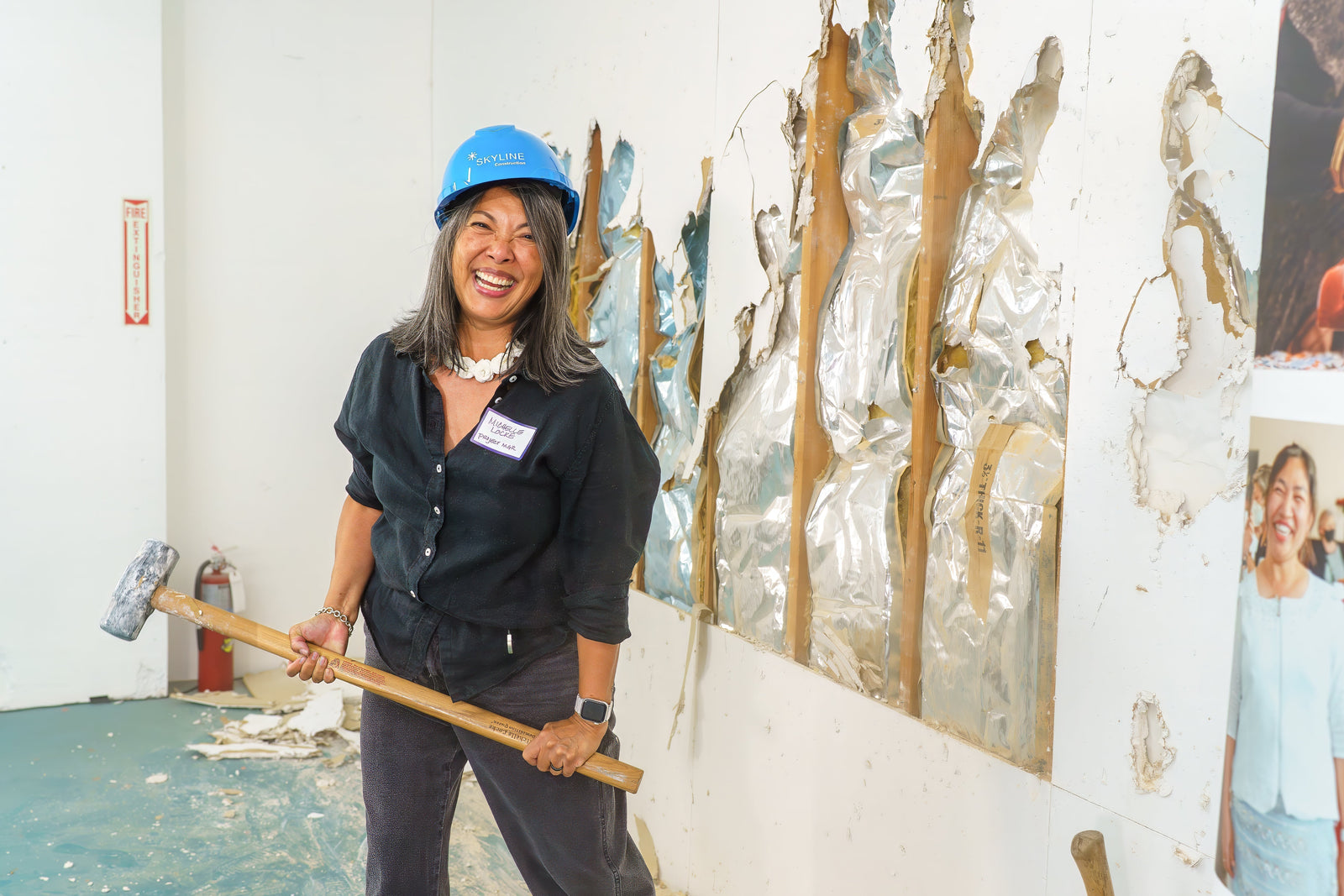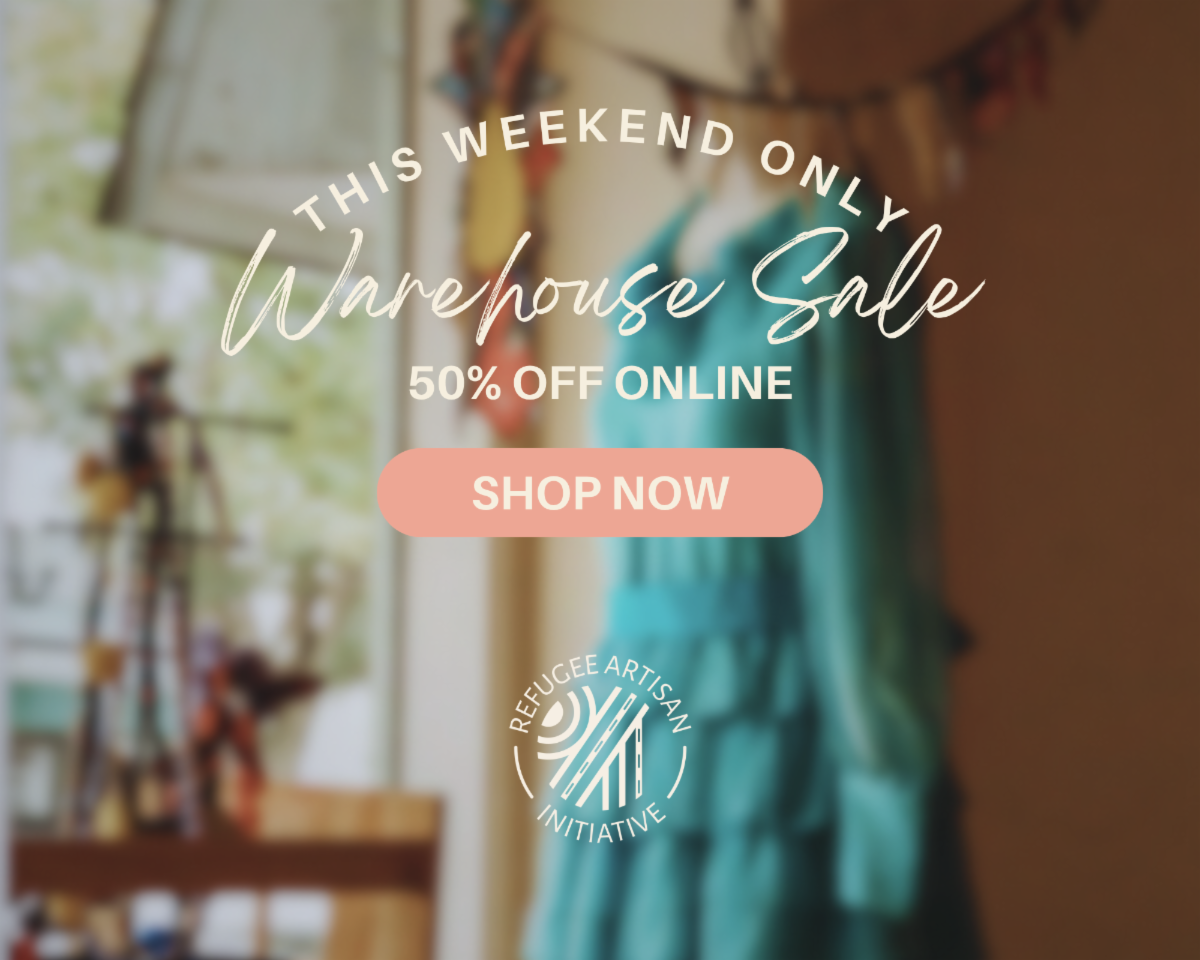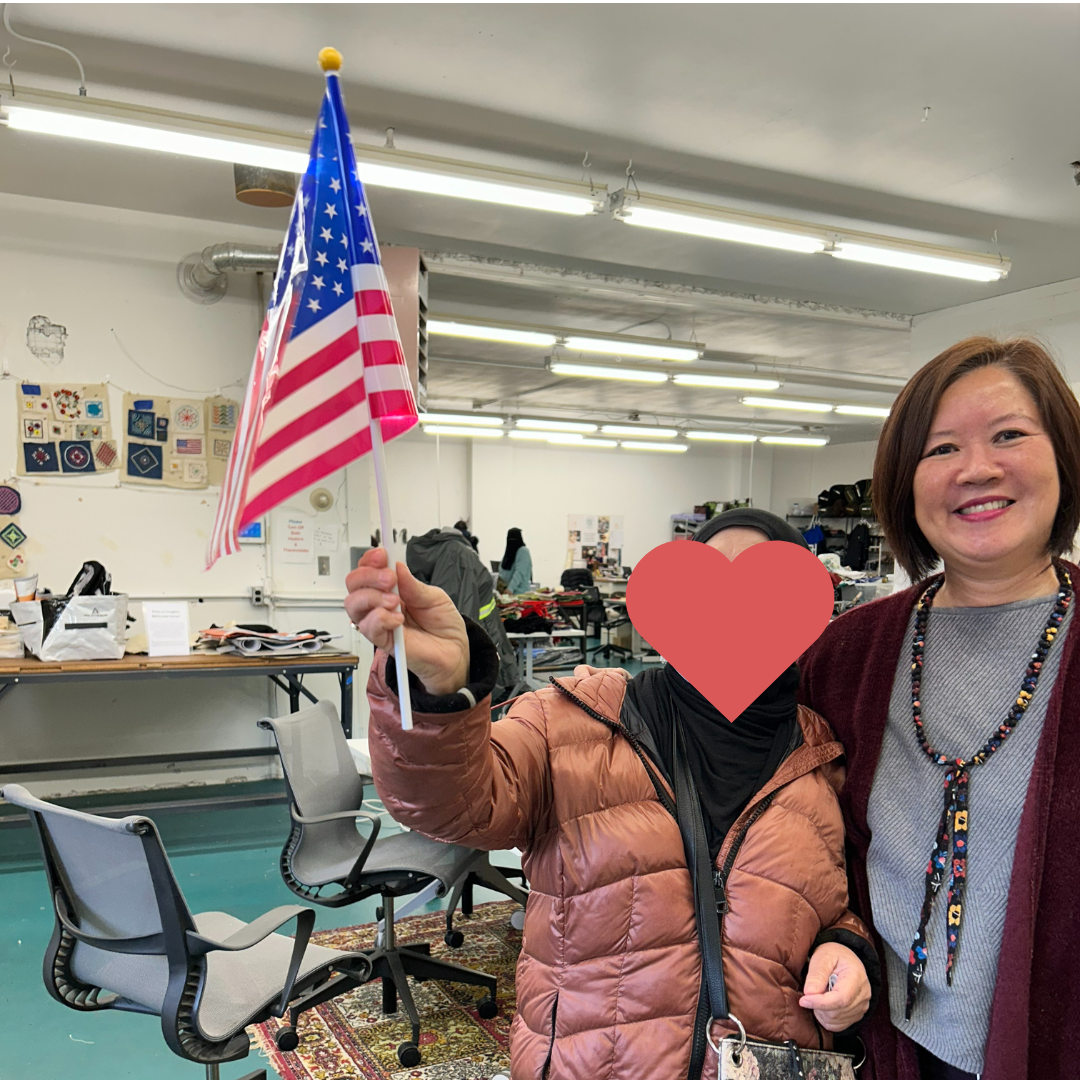March 31, 2022
Author: Nina Huang
[This article originally appeared in NW Asian Weekly and is reprinted here with permission]
-----
Inspired by her grandmother, who was a single mother that raised her mother and uncle, Ming-Ming Tung-Edelman wanted to use sewing as a way to give back to the community.
Refugee Artisan Initiative (RAI) partners with immigrant women to foster an inclusive, prosperous transition to the United States through artisan skills training in zero waste and small batch manufacturing.
RAI’s founder and executive director, Tung-Edelman was a pharmacist for 25 years before she transitioned into her current role.
“We are nimble in using their skills for community needs by using sewing as a platform to voice concerns. We’ve made masks with VOTE and BLM (for Black Lives Matter) printed on them to combine artisan skills with advocacy, and now to show support for what’s happening in Ukraine,” Tung-Edelman said.
She added that this felt like the perfect opportunity for women who escaped from war zones arriving in Seattle to use sewing as a means of healing to start their new lives, and now they’re taking the opportunity to help refugees in Ukraine.
A few weeks ago, the team at RAI began making blue and yellow butterfly pins in support of Ukraine.
Tung-Edelman shared that the butterfly symbolizes freedom, resilience, and rebirth.
“Our goal is to sell 1,000 pins to raise money for the Ukraine Red Cross, who was one of the first agencies to go in and help with relief efforts,” she said.
“It’s extremely meaningful to have refugees helping refugees,” she added.
Tung-Edelman said that they’re not making the pins to make money. Each butterfly pin costs $10, $4 goes to the artisan that made it and $1 for the cost of materials, the rest of the proceeds go to the Ukraine Red Cross.
She mentioned that Seattle Mayor Bruce Harrell and several King County council members have been wearing the pins in public to show support.
In addition, local community members including Laura Clise of The Intentionalist and Aparna Rae have also been showing their support on social media by wearing their butterfly pins in support of the #StandWithUkraine movement.
“Intentionalist is proud to be among many longtime supporters of the Refugee Artisan Initiative. I had the opportunity to speak at length with Executive Director Ming-Ming Tung-Edelman about how their #StandWithUkraine butterfly pins are both a statement of solidarity and a vehicle to raise much- needed financial support. In addition to highlighting this effort through our online communication channels, we purchased pins and gifted them to fellow women business owners and community leaders with a request that they wear the pins proudly and help to spread the word,” Clise shared in an Instagram direct message.
“We want to create a movement to recognize the butterfly and show solidarity with Ukraine. This also helps our RAI artisans to use their craft and skills for this worthy cause,” Tung-Edelman said.
RAI sells the pins online individually, as well as a kit of five with threads and pins with step-by-step instructions for those who want to make them at home.
The concept for RAI started in 2016, but the nonprofit was incorporated in 2017.
The organization supports a community that values and invests in refugee and immigrant women as they achieve economic independence.
“Sewing to me is a universal language. From Afghanistan to Burma, escaping genocide and the Taliban, sewing allows these women to be self-sufficient early on,” she said.
Sewing is a very familiar skill that they already possess, and she saw how her grandmother provided for her family with these rudimentary skills, so she really wanted to disrupt the concert of these women coming with deficits and wanted to focus on the assets that they came with.
“They have these amazing handcraft sewing skills that they don’t teach in school at all,” she added.
Tung-Edelman shared that they’ve become very consumer-oriented. They have the women come on board and RAI provides them a quick way to start earning income from home through a home-based hybrid model training. They teach the women through video tutorials.
In 2015, when Tung-Edelman was taking a certificate program for fashion at the University of Washington, she became friends with the instructor where they brainstormed ways to combine creating jobs for refugee women and creating a circular equitable economy with textiles.
She started collecting textiles around the city including bed sheets that were previously purchased from Amazon that couldn’t be resold. She picked those up from the warehouse in Fife and was able to teach the women at RAI to turn the bed sheets into face masks. Tung-Edelman started a GoFundMe campaign and raised money to make 1,000 masks for Kaiser Permanente in Everett. In addition, they also produced masks for bus drivers driving for the city of Seattle.
RAI currently works with 16 women refugees from Afghanistan, Burma, China, Ethiopia, Morocco, and Vietnam.
They also partner with refugee settlement offices in the greater Seattle area, such as the Refugee’s Women Alliance and others to onboard more artisans from countries like Burma and Ethiopia.
Baseerah Salim, a mother of six from Afghanistan, moved to Seattle in 2003 and joined RAI as an artisan just at the end of last summer.
Salim already knew how to sew as she used to make traditional clothing for her and her children.
Her work has been flexible as she works three to four hours a day from her home in Northgate, and it’s the exact way that she would’ve wanted to work.
“Sewing has been a favorite of mine since I was a child. I learned from my mom, and I love it. Right now, I’m so happy,” she said.
Her favorite thing to make is the scrunchie because her kids love it.
Prior to working at RAI, she worked in childcare.
Salim has sewed a variety of products including embroidered pillows, sandwich bags, face masks, scrunchies, and now the butterfly pins.
“I’m happy to help support the Ukrainian refugees because when I was about 10 or 11, I went through a similar experience that was very difficult,” she explained.
Nina can be reached at info@nwasianweekly.com.
